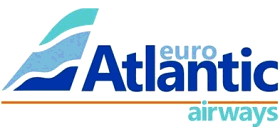 Mozambique-Lisbon Route Woes
Mozambique-Lisbon Route Woes
The Mozambican government’s offer of \$3 million to settle a contract dispute with EuroAtlantic Airways has sent ripples through the African travel industry. This offer, significantly less than the \$21 million claimed by the Portuguese airline, stems from the abrupt termination of an ACMI (Aircraft, Crew, Maintenance, and Insurance) contract for the Maputo-Lisbon route. The situation holds valuable lessons for travel agents across the continent, highlighting the complexities and potential pitfalls of airline partnerships and the volatile nature of international route operations.
The Maputo-Lisbon route, a vital connection between Mozambique and Europe, was relaunched by LAM Mozambique Airlines in November 2023 after a 12-year hiatus. This move was met with initial enthusiasm, promising to boost tourism and business travel between the two countries. EuroAtlantic Airways, under the ACMI agreement, provided the aircraft and crew for the route, operating a 302-seat Boeing 777 three times a week. However, the anticipated success story quickly turned sour.
Despite the initial promise, the route proved financially unsustainable. Within just a few months, LAM Mozambique had accumulated substantial losses, exceeding \$21 million according to the airline. This financial strain forced the airline to suspend the route in February 2025, a mere fifteen months after its relaunch. The suspension underscores the challenges airlines face in maintaining long-haul routes, particularly in a competitive market.
The heart of the dispute lies in the significant discrepancy between the Mozambican government’s offer and EuroAtlantic’s claim. Mozambique’s Transport Minister, João Matlombe, has defended the \$3 million offer as “just compensation,” arguing that EuroAtlantic also owes LAM Mozambique for services not rendered. This stark contrast in figures highlights the complexities of ACMI contracts and the potential for financial disagreements when operations cease unexpectedly.
For African travel agents, this situation serves as a crucial case study. It emphasizes the importance of due diligence when partnering with airlines, particularly regarding international routes. Agents should carefully consider the financial stability of partner airlines and the potential risks associated with new or relaunched routes. The Maputo-Lisbon case demonstrates that even seemingly promising ventures can quickly become unsustainable, impacting travel arrangements and potentially leading to financial losses for agents and their clients.
The dispute also highlights the broader challenges facing African aviation. Maintaining profitable international routes is essential for connecting the continent to global markets and fostering tourism and business travel. However, factors such as fluctuating fuel prices, competition from established carriers, and economic instability can make these routes difficult to sustain. African airlines and governments must work together to develop strategies for mitigating these risks and ensuring the long-term viability of international air travel.
The fallout from the Maputo-Lisbon route suspension extends beyond the immediate financial dispute. It raises questions about the future of air connectivity between Mozambique and Europe and the potential impact on tourism and business travel. For African travel agents, staying informed about these developments is crucial for adapting their strategies and offering clients reliable and cost-effective travel options.
The \$18 million difference between the offer and the claim underscores the high stakes involved in international aviation agreements. This case serves as a reminder of the importance of clear contract terms, open communication, and a thorough understanding of the financial risks involved. As the African travel industry continues to evolve, learning from such experiences will be essential for navigating the complexities of the market and ensuring sustainable growth.
The suspension of the Maputo-Lisbon route and the subsequent contract dispute offer valuable insights for African travel professionals. By understanding the factors that contributed to this situation, agents can better assess risks, make informed decisions, and protect their businesses and clients from potential disruptions. This case serves as a reminder that the aviation landscape is constantly changing, and adaptability is key to success in this dynamic industry.
